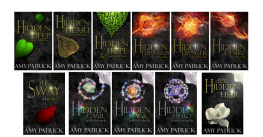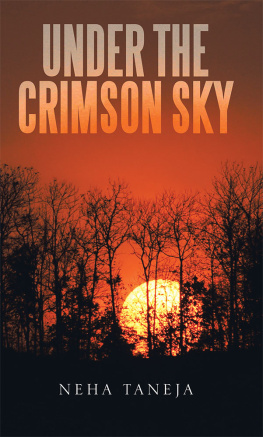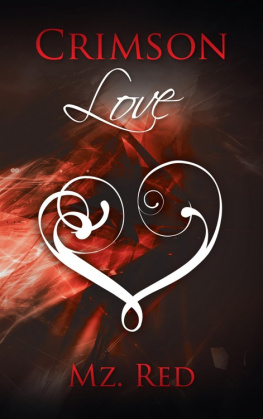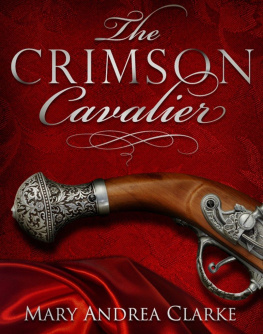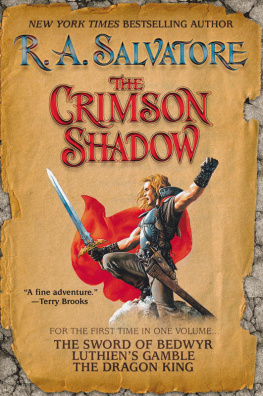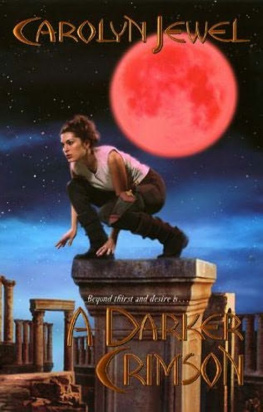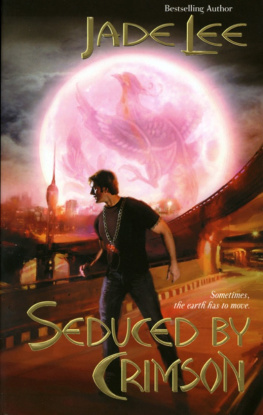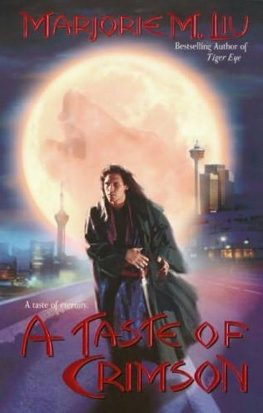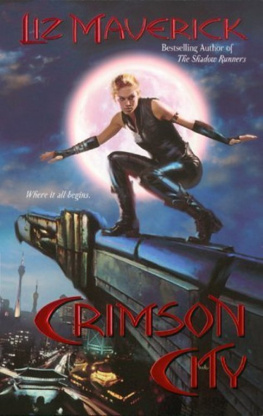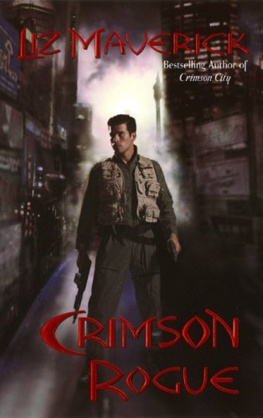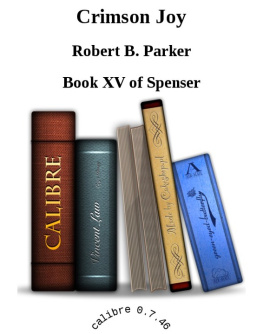Pete Tomsett - Fifty Shades of Crimson: Robert Fripp and King Crimson
Here you can read online Pete Tomsett - Fifty Shades of Crimson: Robert Fripp and King Crimson full text of the book (entire story) in english for free. Download pdf and epub, get meaning, cover and reviews about this ebook. year: 2021, publisher: Backbeat, genre: Non-fiction. Description of the work, (preface) as well as reviews are available. Best literature library LitArk.com created for fans of good reading and offers a wide selection of genres:
Romance novel
Science fiction
Adventure
Detective
Science
History
Home and family
Prose
Art
Politics
Computer
Non-fiction
Religion
Business
Children
Humor
Choose a favorite category and find really read worthwhile books. Enjoy immersion in the world of imagination, feel the emotions of the characters or learn something new for yourself, make an fascinating discovery.

- Book:Fifty Shades of Crimson: Robert Fripp and King Crimson
- Author:
- Publisher:Backbeat
- Genre:
- Year:2021
- Rating:4 / 5
- Favourites:Add to favourites
- Your mark:
- 80
- 1
- 2
- 3
- 4
- 5
Fifty Shades of Crimson: Robert Fripp and King Crimson: summary, description and annotation
We offer to read an annotation, description, summary or preface (depends on what the author of the book "Fifty Shades of Crimson: Robert Fripp and King Crimson" wrote himself). If you haven't found the necessary information about the book — write in the comments, we will try to find it.
Pete Tomsett: author's other books
Who wrote Fifty Shades of Crimson: Robert Fripp and King Crimson? Find out the surname, the name of the author of the book and a list of all author's works by series.
Fifty Shades of Crimson: Robert Fripp and King Crimson — read online for free the complete book (whole text) full work
Below is the text of the book, divided by pages. System saving the place of the last page read, allows you to conveniently read the book "Fifty Shades of Crimson: Robert Fripp and King Crimson" online for free, without having to search again every time where you left off. Put a bookmark, and you can go to the page where you finished reading at any time.
Font size:
Interval:
Bookmark:

Fifty Shades of Crimson

An imprint of Globe Pequot, the trade division of
The Rowman & Littlefield Publishing Group, Inc.
4501 Forbes Boulevard, Suite 200, Lanham, Maryland 20706
BackbeatBooks.com
Distributed by NATIONAL BOOK NETWORK
Copyright 2021 by Pete Tomsett
Unless otherwise noted, all images are from the authors personal collection.
All rights reserved. No part of this book may be reproduced in any form or by any electronic or mechanical means, including information storage and retrieval systems, without written permission from the publisher, except by a reviewer who may quote passages in a review.
British Library Cataloguing in Publication Information available
Library of Congress Cataloging-in-Publication Data
Names: Tomsett, Pete, author.
Title: Fifty shades of Crimson : Robert Fripp and King Crimson / Pete Tomsett.
Other titles: 50 shades of Crimson
Description: Lanham : Backbeat, 2021. | Includes bibliographical references and index.
Identifiers: LCCN 2021013593 (print) | LCCN 2021013594 (ebook) | ISBN 9781493051021 (paperback) | ISBN 9781493051038 (epub)
Subjects: LCSH: King Crimson (Musical group) | Fripp, Robert, 1946- | Progressive rock music--History and criticism.
Classification: LCC ML421.K52 T66 2021 (print) | LCC ML421.K52 (ebook) | DDC 782.42166092/2--dc23
LC record available at https://lccn.loc.gov/2021013593
LC ebook record available at https://lccn.loc.gov/2021013594
 The paper used in this publication meets the minimum requirements of American National Standard for Information SciencesPermanence of Paper for Printed Library Materials, ANSI/NISO Z39.48-1992.
The paper used in this publication meets the minimum requirements of American National Standard for Information SciencesPermanence of Paper for Printed Library Materials, ANSI/NISO Z39.48-1992.
This Tomsett is indebted to all those who helped in the series of events culminating in this book. My biggest thanks must go to my remarkable mother, Brigitte Tomsett, without whom nothing would have been possible. She just about knows the name Robert Fripp but would still prefer to listen to a bit of Volksmusik! Thanks to my brother, David C. Tomsett, for introducing my young ears to prog and psychedelia, and I am also extremely grateful to Carol Flannery, Barbara Claire, Jessica Kastner, Jessica Thwaite and all at Rowman & Littlefield/Backbeat.
Eternal gratitude to Robert himself, and my great thanks to the following for allowing me to do interviews of all shapes and sizes: Bill Bruford, Peter Giles, Gordon Haskell, Judy Dyble, Gini Wade, Ronan Chris Murphy and Robert S. P. Fripp. (Sadly, Gordon and Judy have since passed away.) Thanks for images, comments, contacts, passing chats, reading suggestions and general encouragement to Adrian Belew, Bill Bruford, Peter Giles, Gini Wade, Bev & May Strike, Bourne mouth Library, John Henry, Tomoko Okamoto, Chris Arnold, Alison Beeton-Hilder, Peter Shearer, Chrissy Brand, Alex Bomber Harris, Al Kirtley, Marius, Monika and Danny Olbert and Dave Simmons (Simmons Innovations). Obviously, no one location was sufficient to contain the writing of this book, which was written in Wealdstone, Bournemouth, Salisbury, Littlehampton, Barcelona, Nice and assorted parts of Austria.
Tinkety-tonk and down with Nazis, viruses and dinosaurs.
Its no idle exaggeration to say that in 1969 five young EnglishmenRobert Fripp, Ian McDonald, Greg Lake, Michael Giles and Peter Sinfieldcalling themselves King Crimson, altered the course of rock music. Their early live shows and their debut album, In the Court of the Crimson King, with its unforgettable Schizoid Man cover, shone a bright light on the road ahead for many other young musicians. While The Beatles, Cream, Jimi Hendrix and others had been opening doors to colourful and dramatic new possibilities, King Crimson boldly stepped through those doors, gathered up the various strands of what they found and made perfect sense of it all. In so doing they defined the developing progressive rock scene, mixing rock with folk, jazz and classical, and triggered its exponential rise. But despite achieving far more than they could ever have dreamt of, that line-up soon fell apart, and guitarist Fripp found himself as the only original playing member left, with lyricist, Sinfield, at his side. As a man with immense ambition and sense of purpose though, he was more than comfortable with being at the helm, and set about rebuilding the band, emerging as one of those rare people who have that special, indefinable ingredient in their make-up that makes them an innovator and leader.
With Fripp ultimately as the only constant, the line-up changes continued at an alarming pace, with no less than Elton John and Bryan Ferry being rejected along the way. But amidst the instability and a growing reputation of being difficult to work with, Fripp was not afraid to take each incarnation of the band to somewhere entirely new, putting out a string of acclaimed and influential albums. While the bands sound was frequently reinvented, the constant factor that infused all Crimsons music was the desire to go somewhere new and interesting, somewhere different to where the herd was going. For the first half of the seventies Crimson were regularly in the public eye and the album charts alongside the likes of Pink Floyd, Simon and Garfunkel and The Rolling Stones, and with Fripp also branching out into production and a ground-breaking collaboration with flamboyant sound shaper, Brian Eno, it seemed that there were no limits for the man. However, as one of the rock worlds intellectuals, he was developing an intense dislike of the motives and practices of the music business, and of playing any kind of conventional rock star role, preferring to do things his way, whether others liked it or not. Having been so significant in changing a major part of what the mainstream was, from here on he would have a very uncomfortable relationship with it. This worked in its own chaotic way until 1974, when the guitarist shocked the music world by disbanding Crimson. On top of his cynicism about the music industry, Fripp had just come across the philosophical teachings known as The Fourth Way, which dramatically shook up his world view and instilled in him a belief that society was heading rapidly towards collapse. His response was to withdraw from the music business in order to prepare for whatever might emerge from this collapse.
That could quite easily have been the end of the story, although if it had been, Fripp and Crimson had already earned their places in music history. Fortunately, it was far from the end, though from here on Fripps involvement in music would be much more on his own terms. His first tentative toes back in the water involved performing guitar duties for David Bowie and Peter Gabriel, playing on several successful albums and singles. Having moved to New York and becoming immersed in the vibrant music culture there, he then released a series of innovative solo albums. He still craved something more though, and in the early eighties did the one thing that no one was expecting, and reformed King Crimson. For the post-punk world this was a very different Crimson, fronted by exuberant American Adrian Belew, the first time another guitarist had been allowed in the band. Three more acclaimed albums followed, but again, just as things had seemed stable on the surface, Fripp called another halt to the band.
Font size:
Interval:
Bookmark:
Similar books «Fifty Shades of Crimson: Robert Fripp and King Crimson»
Look at similar books to Fifty Shades of Crimson: Robert Fripp and King Crimson. We have selected literature similar in name and meaning in the hope of providing readers with more options to find new, interesting, not yet read works.
Discussion, reviews of the book Fifty Shades of Crimson: Robert Fripp and King Crimson and just readers' own opinions. Leave your comments, write what you think about the work, its meaning or the main characters. Specify what exactly you liked and what you didn't like, and why you think so.

